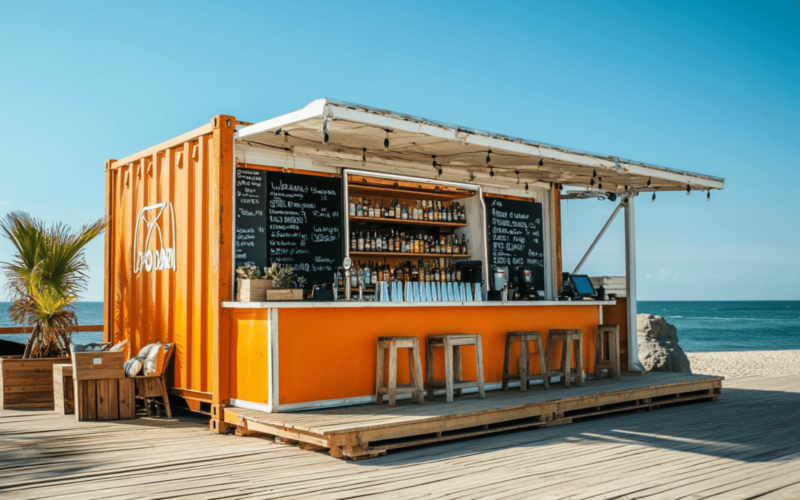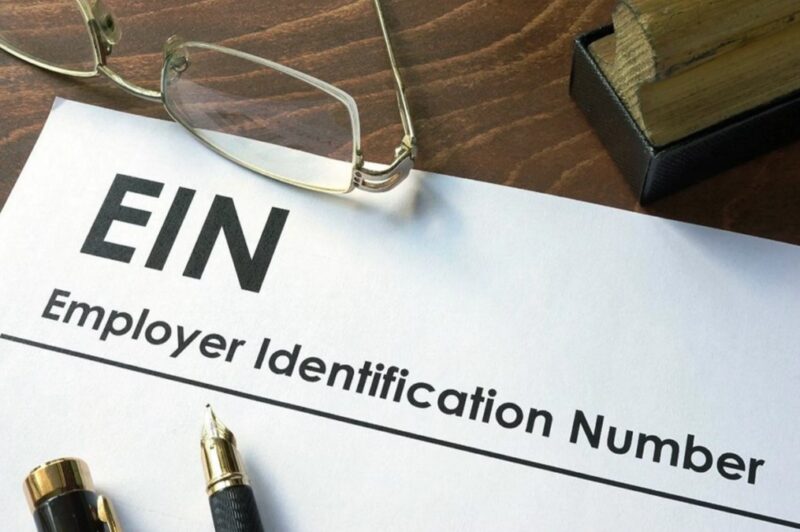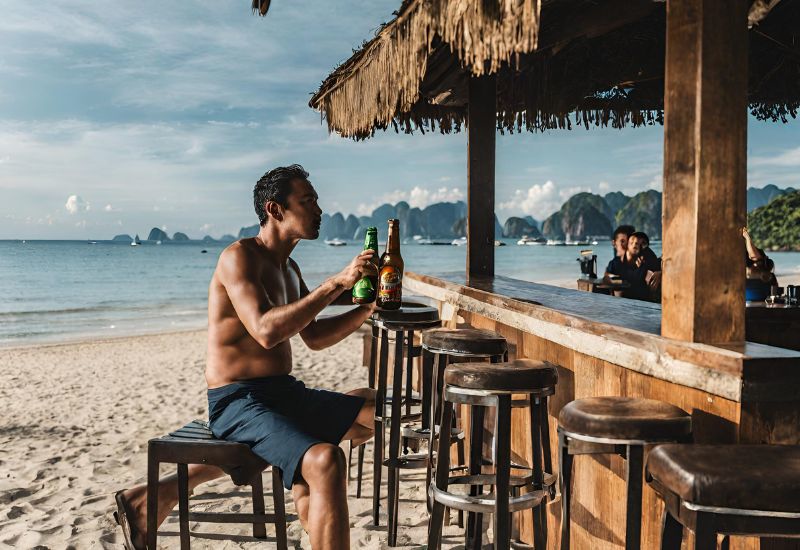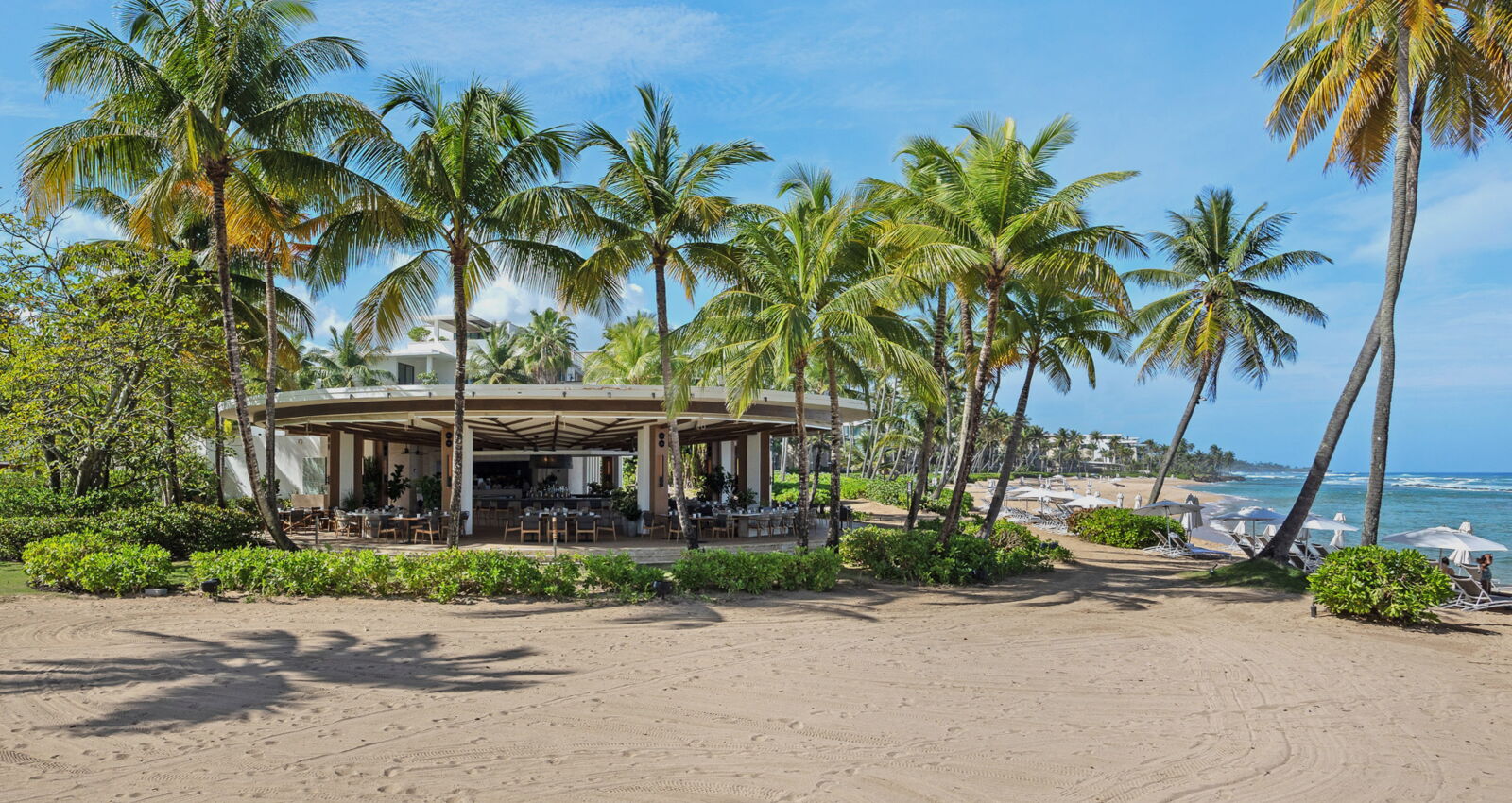Puerto Rico offers an inviting blend of tropical weather, strong tourism flow, and a straightforward environment for entrepreneurs who hold U.S. citizenship.
No need for visas, unfamiliar currency, or different federal systems.
A beach bar fits perfectly into the island’s tourism-driven energy, supported by warm temperatures, lively coastal communities, and a steady stream of visitors seeking relaxation and entertainment.
Many aspiring business owners see an opportunity to mix lifestyle and profit, creating a space that captures vacation energy while operating under familiar U.S. rules.
Let us take a look at the process people interested in opening a beach bar in Puerto Rico would need to go through.
Table of Contents
ToggleBusiness Planning and Structure
A successful beach bar begins with strong planning and a structure that supports long-term growth.
Entrepreneurs who invest time in developing a model, choosing a legal format, and confirming key requirements position themselves far better for success.
Puerto Rico’s coastal hospitality scene rewards owners who prepare thoughtfully and build a concept that fits both local conditions and visitor expectations.

Define Your Business Model
A clear business model gives direction and sets the tone for a beach bar’s identity.
Owners benefit from clarifying their core focus early, as each direction influences menu choices, staff skills, layout, and customer experience.
Several popular approaches dominate coastal hospitality, each carrying its own strengths.
Below is an overview of common beach bar concepts:
- Food-forward menus with seafood, grilled specialties, and beach snacks
- Cocktail-driven programs with tropical drinks, rum-focused mixes, and tasting experiences
- Entertainment-oriented formats with DJs, salsa nights, live bands, or sunset gatherings
A food-focused bar attracts guests seeking casual dining with a relaxed coastal atmosphere.
Menus often highlight local ingredients and quick-serve options that pair well with beach settings.
A cocktail-forward concept often revolves around signature drinks, seasonal mixers, and visually appealing beverages that draw attention on social media.
An entertainment model aims to make the bar a destination during evenings and weekends, relying on music, dancing, or themed events.
Outdoor and indoor balance plays a major role in comfort and durability. Coastal weather can shift quickly, making functional design essential.
Owners often rely on combinations of sun-shaded zones, roofed decks, and breezy open-air sections.
Long-term resilience requires storm-proof construction, well-secured fixtures, and proper airflow to protect equipment and maintain guest comfort throughout the year.

Choose the Right Legal Entity
A legal entity forms the foundation of how a beach bar operates, protects its owners, and handles liability.
Entrepreneurs benefit from choosing a structure that matches their goals, risk level, and financial plans.
Below are the most common structures considered:
- LLC for flexibility, protection, and suitability for small to medium beach bars
- Corporation for owners preparing to scale, attract investors, or manage shares
- Sole proprietorship for simplicity when legal protections are not the main priority
An LLC remains popular due to its straightforward formation and balanced liability shield.
Growth-focused owners who expect outside investment often choose a corporation, since it supports share distribution and more formal governance.
A sole proprietorship keeps operations simple but leaves personal assets more exposed.
Zarla and MZLS formation categories help clarify distinctions and guide business owners toward the structure that best fits their vision.
Storage and Equipment Logistics
Efficient storage is essential for beach bar operators managing seasonal inventory, event supplies, or backup furniture.
Particularly in coastal towns like Toa Baja, where space can be limited and humidity levels are high, it’s smart to invest in climate-controlled, secure storage.
Entrepreneurs often benefit from convenient storage units in Toa Baja, such as those offered by NSA Storage.
These facilities provide flexible unit sizes, climate protection, 24/7 surveillance, and easy access, ideal for keeping equipment safe during hurricane season or securely managing overflow stock.

Business Registration Steps
A smooth registration process ensures that the beach bar begins on a solid legal foundation.
Puerto Rico provides an online system that simplifies tasks, though accuracy and preparation remain crucial.
Entrepreneurs who follow each step carefully eliminate delays and avoid correcting preventable mistakes later.
Name Availability Search
A name search through the Puerto Rico Department of State online portal ensures that the desired business name is open for use.
Securing the name early helps avoid conflicts and supports branding efforts.
Register Your Entity
Entity registration is completed online through the Department of State system.
Owners submit essential details such as business purpose, registered agent, incorporators, and administrators.
Careful filing reduces the chance of delays when applying for additional permits.
Obtain an EIN
An EIN granted by the IRS supports payroll processing, banking, and federal tax requirements.
Any business with employees or structured ownership must hold a valid EIN.

Register with the Puerto Rico Treasury via SURI
SURI acts as the central tax platform for Puerto Rico.
Beach bars are required to register for sales tax collection, obtain a Merchant’s Certificate, and establish income tax accounts.
Compliance with IVU collection is mandatory for food and alcohol sales.
Residency and Tax Incentives
Puerto Rico offers valuable incentives for those who qualify under residency guidelines.
Entrepreneurs willing to establish personal and business ties often benefit from significant tax reductions.
Strong compliance with residency tests and documentation ensures a smooth process.
Bona Fide Resident Test
Qualifying as a bona fide resident requires meeting three conditions. Presence on the island must exceed 183 days per year.
Personal and financial connections, such as housing and banking, help demonstrate closer ties.
A primary tax home in Puerto Rico completes the requirement. Many business owners commit to these steps to pursue long-term savings and operational confidence.

Tax Incentives under Act 60
Act 60 provides meaningful financial advantages for eligible individuals and companies.
Dividend income may qualify for a 0 percent tax rate once residency requirements are met. Companies engaged in exported services often benefit from a 4 percent corporate rate.
Certain activities also receive reductions on property taxes reaching up to 90 percent.
Permits and Licenses
Operating a beach bar in Puerto Rico requires multiple permits that validate safety, sanitation, alcohol service, and building use.
Entrepreneurs benefit from organizing documents early and using Puerto Rico’s centralized platforms for efficiency.
Use the Single Business Portal
Account creation on the Single Business Portal simplifies access to permit applications. Centralized digital tools reduce in-person visits and streamline the approval process.
Common Permits for a Beach Bar
A beach bar typically requires several permits. Below is a list of the most common ones:
- A Unique Permit covering use certification, sanitation approval, and fire safety
- Alcohol licensing is processed through health authorities or municipal offices
- Food handling certifications for all staff involved in preparation or service
These permits ensure that the bar operates safely, legally, and in compliance with local regulations.

Summary
A beach bar in Puerto Rico offers a balance of lifestyle and profitability supported by simplified legal steps for U.S. citizens.
Careful planning, clear business structure, proper licensing, and awareness of helpful tax incentives all contribute toward stable long-term operations.
Local professionals in law and accounting can streamline the process and reduce mistakes.
A well-planned beach bar rewards owners with an energizing environment, cultural engagement, and strong potential for steady tourist-driven growth.
Related Posts:
- Creative Bar Promotions That Will Have Your…
- Cocktail Bar Design Ideas to Elevate Your Home or Business
- How to Build a Home Bar - Essential Spirits and Tools
- 8 Simple Ways to Design a Home Bar That Will Impress Guests
- How to Create a Signature Cocktail for Your Bar?…
- What Is a Dive Bar? The Raw Appeal of Unpolished Pubs









